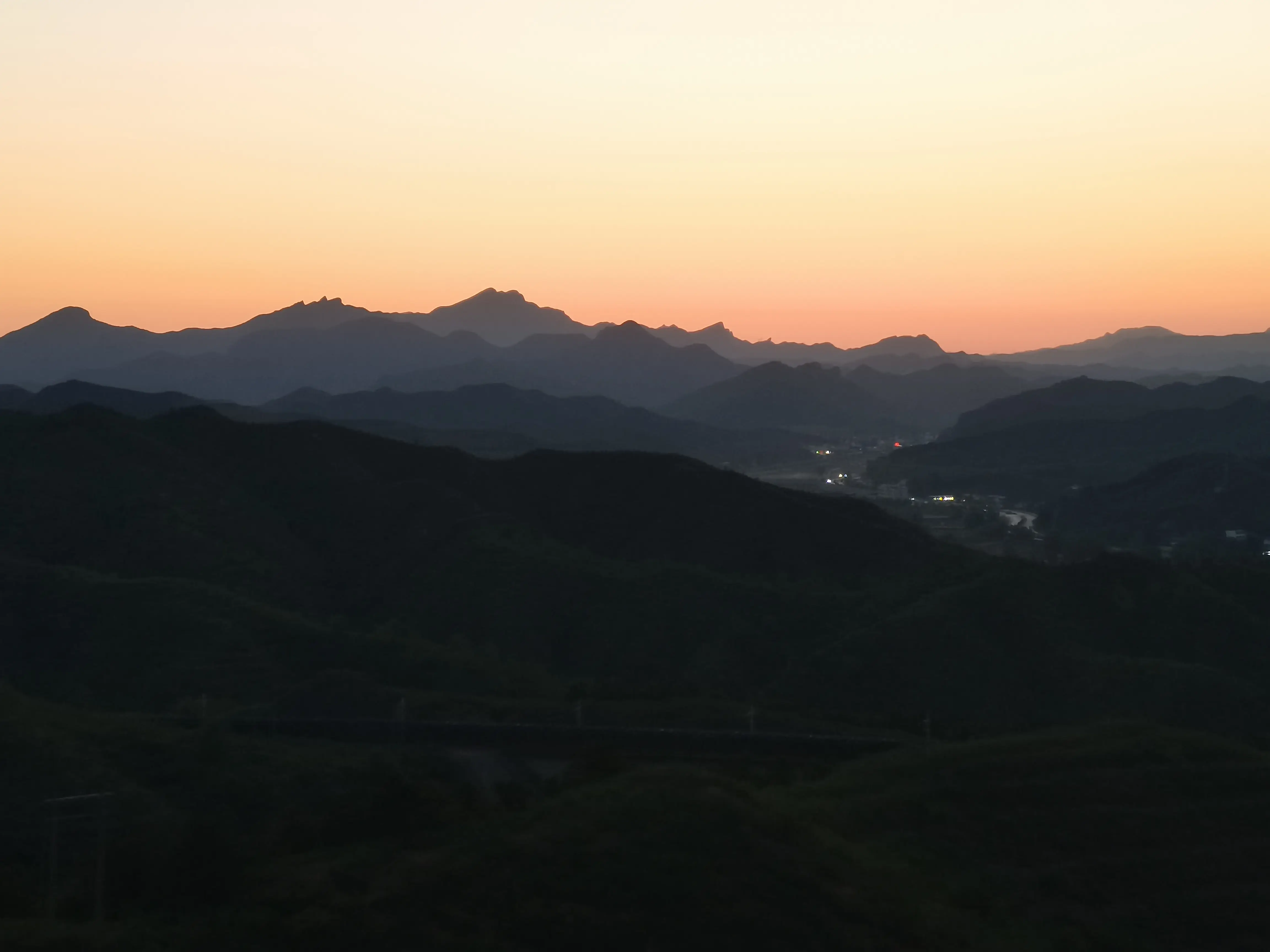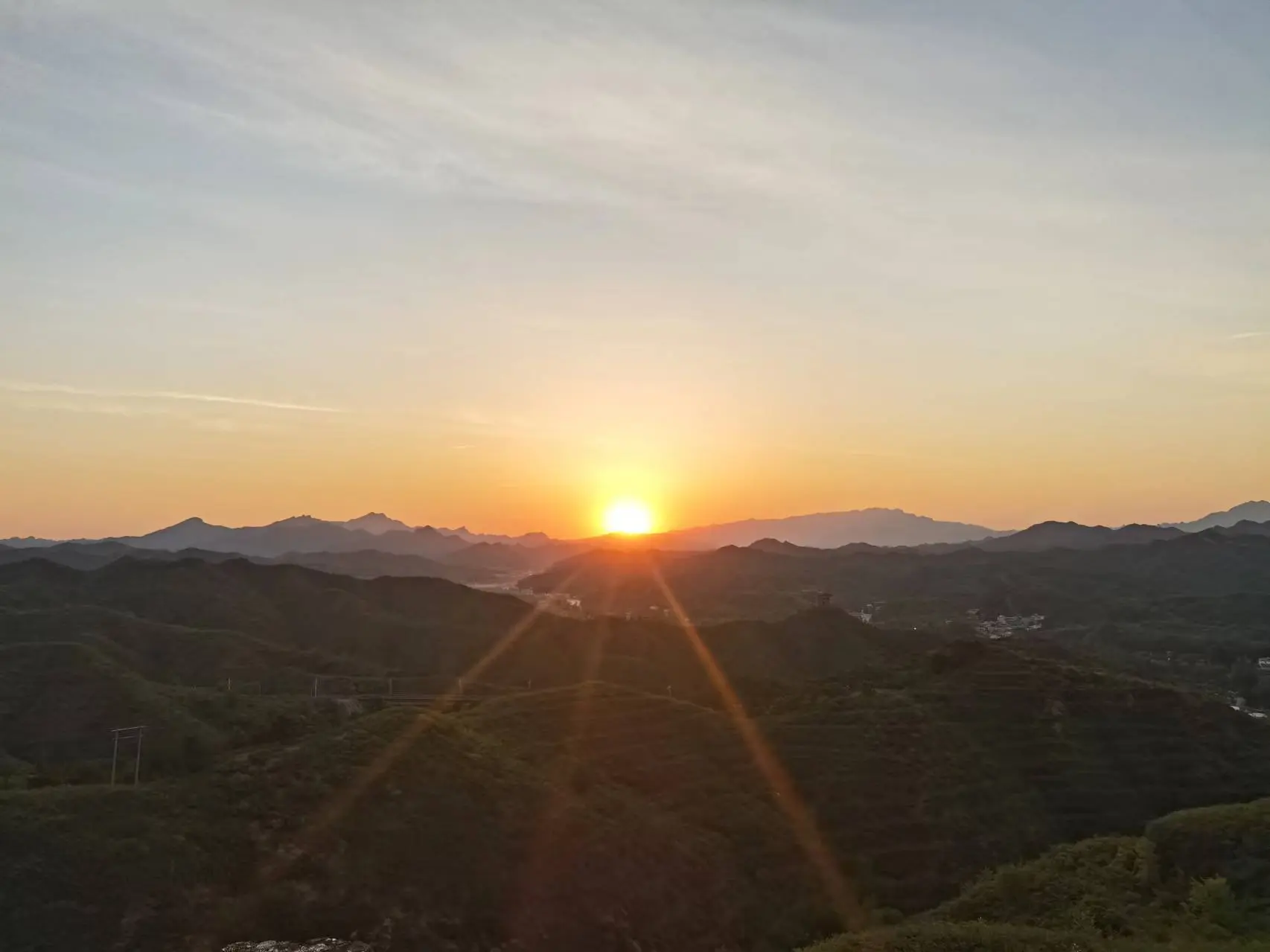Research Note 2: Miyun Wild Great Wall

Beijing WTown
Due to a shortage in the research team, I was roped in by my professor to join the weekend’s door-to-door survey. The destination was Chao Guan Village in Beijing WTown, Miyun District, Beijing. This place is quite remarkable, embodying the robust spirit of the north while cloaked in the delicate facade of the south.
Miyun District is renowned for its reservoirs, and Gubei Water Town stands proudly along the river. Despite being in the north, it exudes the charm of a southern waterscape. White walls and black tiles, interwoven alleys, rivers running through, and reeds swaying gently in the breeze.
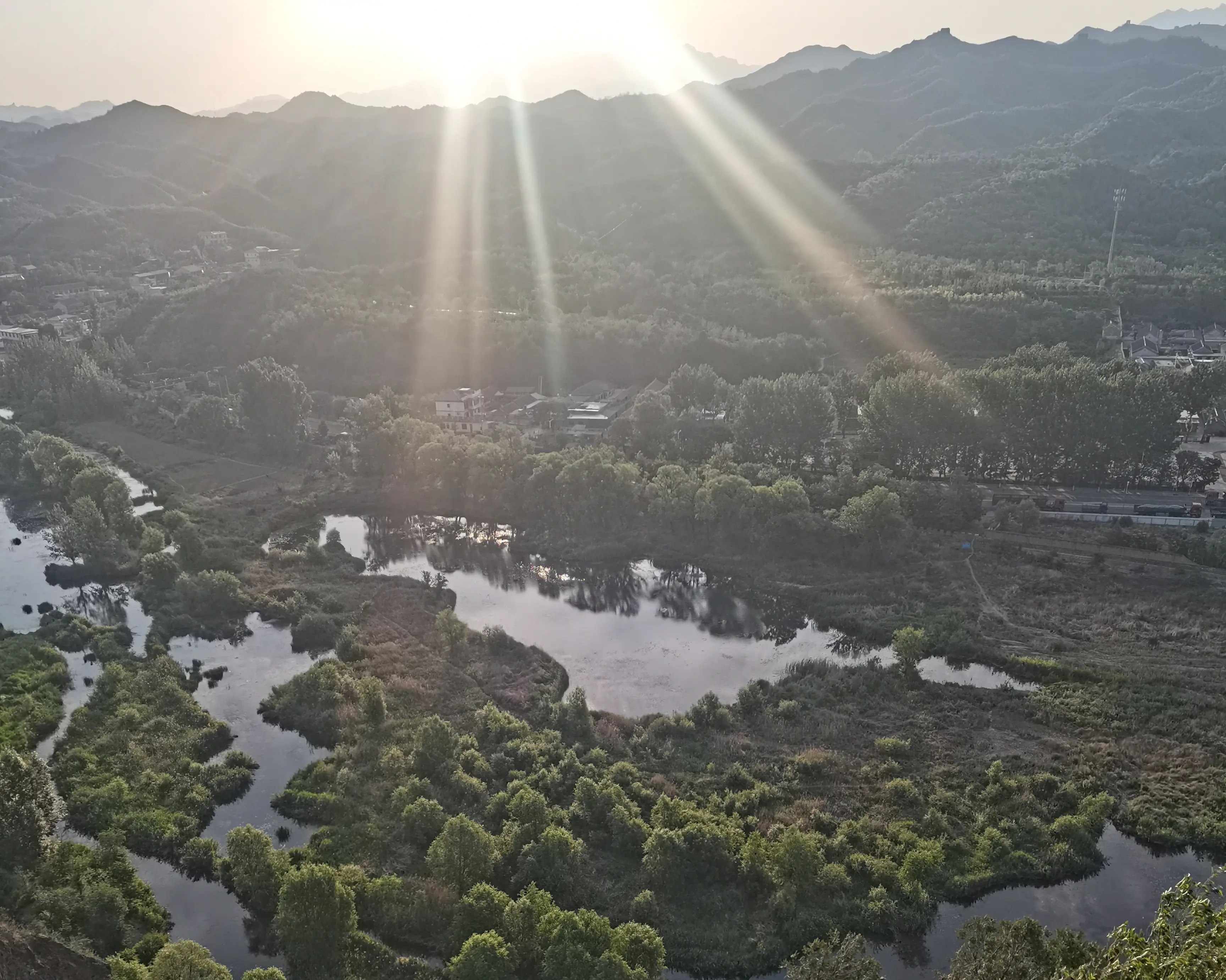
However, looking far along the river, one can see the northern foothills of the Yan Mountains. Steep mountain ranges border the village’s edge, obscuring much of the sky. In this rugged landscape, the Great Wall of the Ming Dynasty winds and twists, like a dragon turning over in its sleep. Majestic and ancient, grand and serpentine, this Great Wall now stands as the boundary, separating Beijing from Hebei.
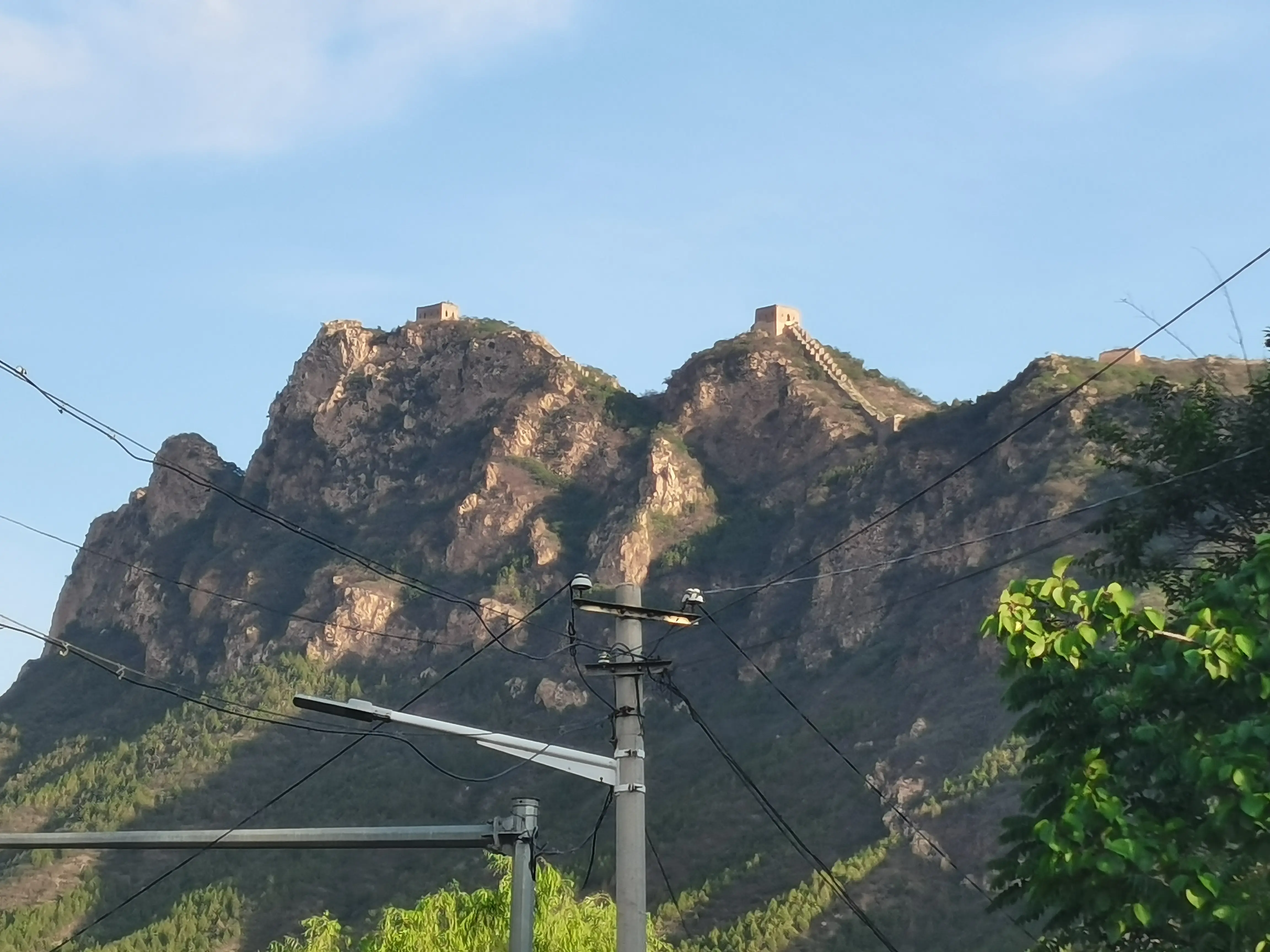
Wo Hu Mountain Great Wall
Having been in Beijing for so long, I had yet to climb a wild section of the Great Wall. The Wo Hu Mountain Great Wall, part of the Ming Dynasty’s construction, is unique for its circular beacon towers1. The owner of the guesthouse2 gave directions to my classmates on how to reach the Wall, and I decided to join them for the sunrise.
We set off at 3 a.m., walking along the national highway beside the guesthouse. After spotting a tourism signpost, we found Yang Qilang’s tomb and temple nearby. Passing through the temple, we reached a dirt path leading into the mountains. The stone-brick road of the Great Wall was mostly in ruins, with only the bricks near the beacon towers remaining relatively intact. Starting from this point was particularly memorable because of the presence of a train tunnel.
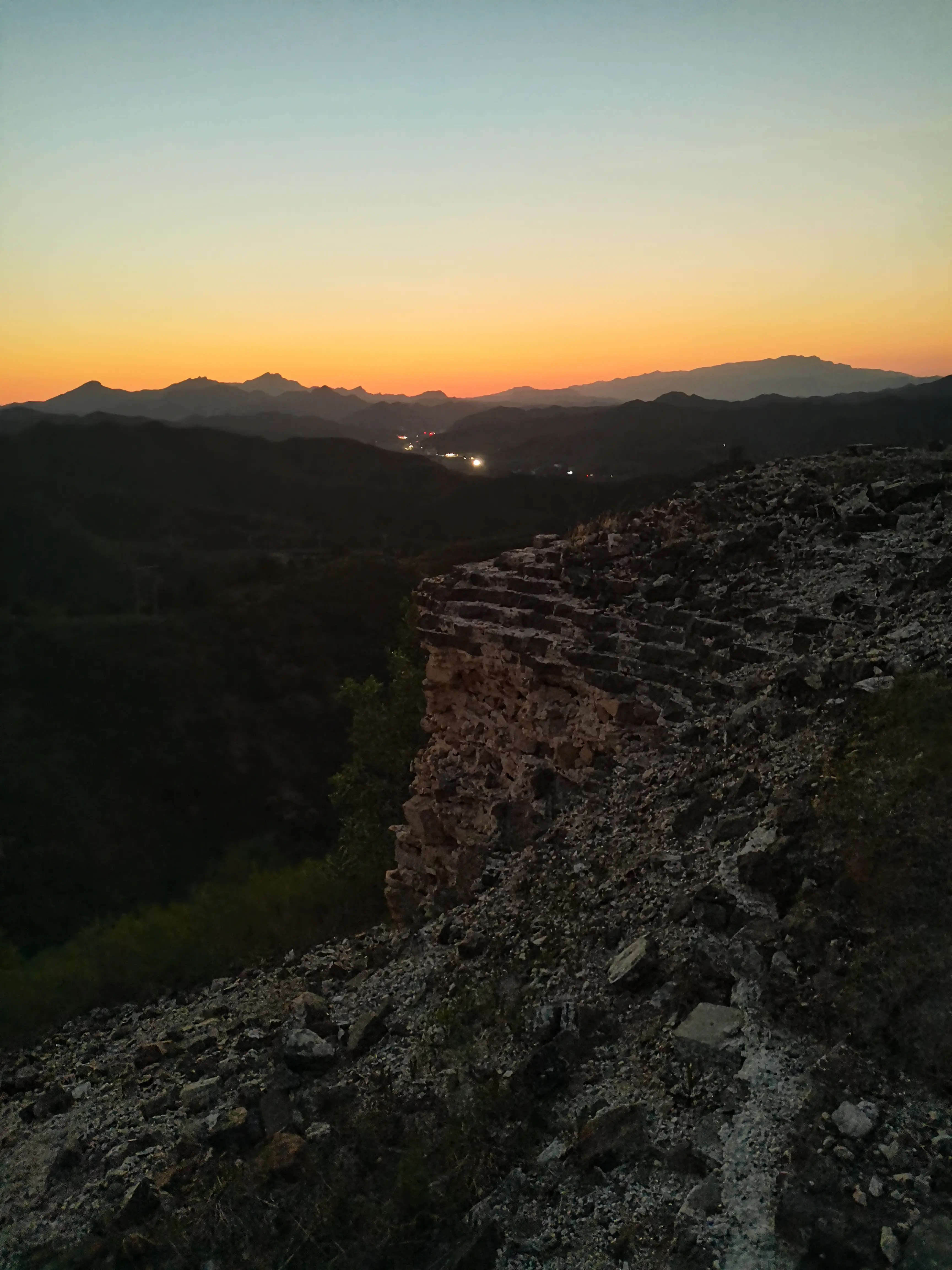
Because we needed time for the door-to-door survey, we ended our climb at the third-to-last beacon tower. It was around four o’clock then. Climbing all the way up would take about an hour and a half, while descending would be much faster, less than an hour.
I haven’t climbed many mountains, and before this, I had only watched the sunrise once on Mount Emei. Watching the sunrise on Mount Emei feels like forging iron3. The sea of clouds at the peak rolls like icy rivers, and suddenly, a spark of the sun pierces through the shroud, creating a hole in the canvas. In an instant, the sea of clouds boils, and the flowing mist splashes around, much like the steaming heat during iron forging. Paired with the golden, gleaming Buddha at the summit, it feels like a celestial realm.
Watching the sunrise from the mountainside of Wo Hu Mountain, the sun is initially blocked by the distant peaks, making the process slower and more nurturing. As the red foam slowly rises in the distance, the ink-wash painting ambiance gradually ascends from near to far. The layers of verdant mountains, the dissipating mist, and the distant lights flickering on one by one—this is the mortal world.
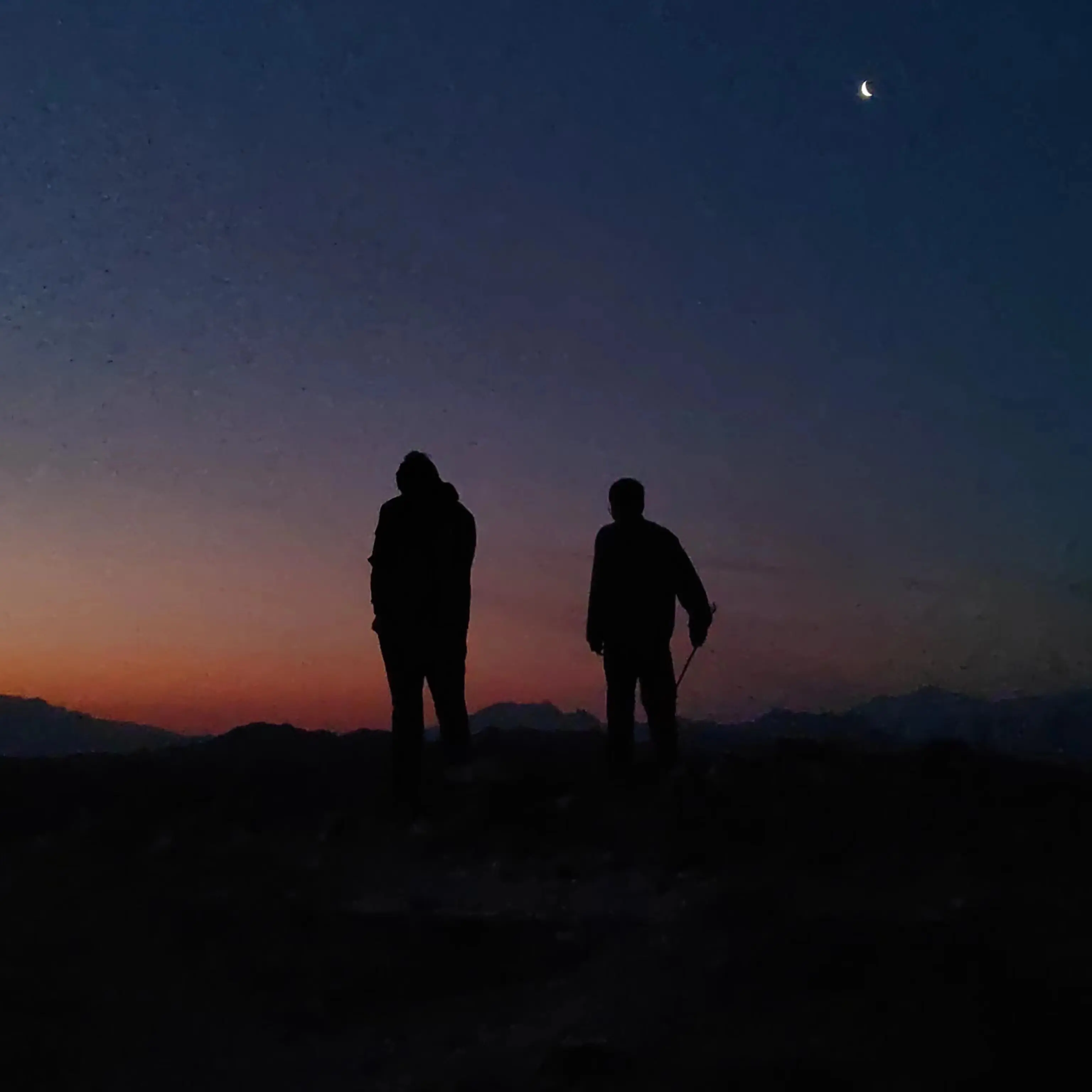
At 4:46, the sun officially crested the mountain peak4. At that moment, I kept thinking of Shi Tiesheng’s words—
But the sun, it is always both a setting sun and a rising sun. As it extinguishes itself, descending and gathering up the desolate remnants of light, it is simultaneously blazing and climbing the peak on the other side, spreading its radiant dawn.
One day, I too will quietly descend the mountain, supported by my crutch. One day, in some mountain hollow, a joyous child will surely run up, clutching his toy.
Of course, that child won’t be me.
But is it not me?
Research Summary
This survey was conducted at the village level, which made the social interactions significantly easier compared to the previous county-level research I had participated in—finally, no more socializing over alcohol.
Personal Reflections:
-
Addressing climate change is indeed urgent. Gubei Water Town is blessed with ample water resources, with most of its land being irrigated fields, including many paddy fields. However, villagers reported that since 2018, the water levels have been declining annually, leading to many irrigated fields being converted into forested areas due to the decreasing water levels.
-
The suburbs of Beijing aren’t much different from my hometown. It is generally believed that poorer areas tend to favor sons over daughters, but here, due to men’s jobs being insufficient to support a family and the bride price system, people actually feel it’s better to have daughters.
-
The attitude of the residents reflects the quality of governance. In areas with rampant corruption, villagers clearly distrusted us, feeling that despite all the surveys, nothing changes: “We common folks, no matter how much we talk, it doesn’t help.” In well-governed areas with good welfare, every response was filled with gratitude towards the state, with villagers willing to comply with any government directives.
-
I realized I am indeed quite careless! My fellow classmates, especially the female students, were much more meticulous than I was. Their questionnaire filling and reviewing were more rigorous, and I should learn from them.
Survey Methods:
-
Elderly party members and enthusiastic grandmothers make the best interviewees—they are attentive, sincere, and willing to actively cooperate with door-to-door surveys.
-
When it comes to income-related surveys, respondents often understate their wealth. In such cases, it is important to observe the room (decoration, presence of a car, size, quality of furniture, etc.) and learn to ask disaggregated questions. For example, break down farming into the yield per mu, the number of mu farmed, and the price per jin. Similarly, use cross-verification by asking unexpected questions. For instance, when calculating income and expenses separately, ensure they balance. For household expenses, consider the number of family members and their consumption. When respondents are uncertain, set ranges—do you have 100 yuan? 200 yuan?
-
The answers to questions can easily be manipulated. For example, asking if villagers come together to discuss solutions when faced with difficulties will invariably get a positive response. However, asking specific questions reveals more. After a recent storm in Beijing knocked down trees in many parks and schools, asking about the storm’s impact on their fields and if they sought collective solutions will likely reveal that everyone managed their own fields independently.
-
Village-household integration. When implementing subsidy programs at the village level, the approach is often straightforward and crude. For example, the distinction between reforestation and ecological public welfare forests is blurred for villagers, who view both as tree planting for money. Subsidies are divided into planting subsidies and other types, but in the village, they are distributed together, making farmers think they get money just for planting. To address this, policies need to be broken down and explained in conjunction with villagers’ responses.
-
Praise should be moderate. Each questionnaire typically takes about an hour5. To ensure cooperation, we often praise the respondents during the interview. However, if the praise is excessive, some attitudinal questions may receive overly positive responses, distorting the results. Moreover, for questions about marital harmony or neighborly relations, unless asked about neighbors, personal responses tend to be uniformly positive.
-
The owner of the B&B said that the circular beacon tower here is one of only two in Beijing. ↩︎
-
The owner of the B&B is very kind. We were picked up and dropped off for free, and the food was so plentiful and delicious that we couldn’t finish it. ↩︎
-
I wrote about the sunrise on Mount Emei many times in my primary school compositions😂. ↩︎
-
Actually, the first thing I thought of was the opening of Teletubbies🤪. ↩︎
-
They are all true feelings. For example, I have no contact with society in school and I want to ask you for your experience. Although we have read some books, we have no life experience. It’s amazing that your memory, body, and spirit are so good at your age. Do your children read to you? What a scholarly family! ↩︎

